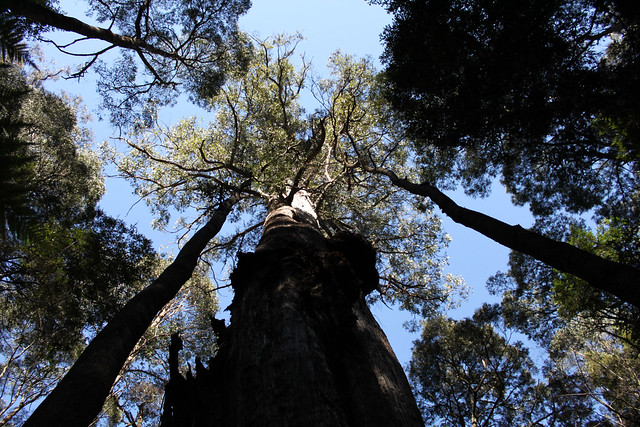Words for sorrow, sadness and related things in Celtic languages.
| Proto-Celtic | *trougos/*trowgo- = sorry, sad, wretched |
|---|---|
| Old Irish (Goídelc) | trúag, tróg = miserable, wretched, emaciated, wretch trúagdae = miserable, wretched trógán, trúagán = miserable person, wretch, pauper trúaige = affliction, compassion, misery, pity, wretchedness |
| Middle Irish (Gaedhealg) | trúag = wretched, pititable, miserable, sad; thin, lean, emaciated; wretch, miserable person trúagdae, trogdae, trúagdai, troghda = miserable, wretched. piteous trúagán = miserable person, wretch, pauper trúagnait, trógnait = wretch, miserable person trúaige = misery, wretchedness, affliction trúaigméil = pitiable, sorrowful |
| Irish (Gaeilge) | trua [t̪ˠɾˠuə] = pity, sympathy, compassion, miserable person, wretch; pitiable, miserable, wretched; lean, thin, emaciated truacánta = piteous, plaintive truacántacht = piteousness, plaintiveness truachroíoch = kind-hearted, compassionate, heartrending, piteous truacht = leanness atruach = compassionate truán = miserable person, wretch; thin, emaciated creature, importunate person truanairt = wretch truánta = wretched; thin, emaciated truántacht = wretchedness; thinness, emaciation |
| Scottish Gaelic (Gàidhlig) | truagh [truəɣ] = abject, forlorn, miserable, pitiful, poor, sorry truaghan [truəɣan] = poor soul/thing, wretch truaghag [truəɣag] = poor/pitiful thing, poor wee thing (female) truaghaileachd [truəɣaləxg] = compassionateness, tender-heartedness truaghanachd [truəɣən̪ˠəxg] = abjectness, miserableness, wretchedness truas [truəs] = pity, compassion, sympathy |
| Manx (Gaelg) | truan = misery truanagh = miserable, mournful, sorrowful person truanys = misery treih = abject, deplorable, feeble, forlorn, fragile, miserable, pathetic, piteous, pitiful, regrettable, rueful treihaght = misery, pitifullness, pitifulness treihnagh = mournful treihys = abjection, abjectness, fragility, misery |
| Gaulish | *trugan = wretch |
| Middle Welsh (Kymraec) | tru, trv = wretched, miserable, deplorable, pitiful, pathetic truan = wretch, miserable person truanu = to take pity, feel compassion truaneid, truanaidd = wretched, miserable, deplorable tryanedd, tayyrnedd = wretchedness trueni = misery, wretchedness, abjectness, degradation truanus = wretched, miserable, deplorable, poor trỽch, troch, truch = unfortunate, sad, wretched |
| Welsh (Cymraeg) | tru [trɨː/triː] = wretched, miserable, deplorable, pitiful, pathetic truan = wretch, miserable person; wretched, miserable, deplorable, pitiful, pathetic, poor, weak truanaf, truanu = to take pity, feel compassion truanaidd = wretched, miserable, deplorable, pitiful truanedd = wretchedness trueni = misery, wretchedness, abjectness, degradation truenus = wretched, miserable, deplorable, poor trwch = unfortunate, sad, wretched, poor; bad, evil, wicked; unfortunate person, wretch, scoundrel |
| Old Cornish | troc = miser |
| Middle Cornish (Cernewec) | tru = alas, pity, sad, woe trueth = pity, compassion troc = wretched, miser |
| Cornish (Kernewek) | tru = alas truan = sadly, miserable, unfortunate, wretched truedh = pity, sympathy truedhek = sadly, pathetic, pitiful, plaintive, sad trogh = broken, wretched |
| Middle Breton (Brezonec) | tru = pitiful, wretched, miserable truant = pitiful, wretched, miserable trugarez = pity, mercy, forgiveness, thanks, misery |
| Breton (Brezhoneg) | tru = pitiful, wretched, miserable, wretch trugarez = thank you, mercy, forgiveness truant = beggar truanter = cheater, supplicant |
Etymology: possibly from the Proto-Indo-European *terh₁- (to rub, turn, drill, pierce). Words from the same roots possibly include truant in English, and truand (crook, gangster, beggar) in French [source].
| Proto-Celtic | *brugnos = saddness, pain |
|---|---|
| Old Irish (Goídelc) | brón [broːn] = sorrow, grief, lamentation, distress, burden |
| Irish (Gaeilge) | brón [bˠɾˠoːnˠ] = sorrow, grief, grieving, lamentation; distress, burden brónach [ˈbˠɾˠoːnˠəx] = sad, sorrowful |
| Scottish Gaelic (Gàidhlig) | bròn [brɔːn] = grief, sadness, sorrow, mourning, affliction brònach [ˈbrɔːnəx] = doleful, miserable, rueful, sad, sorrowful; disconsolate |
| Manx (Gaelg) | bran = sorrow, blackness of soul branagh = mournful, black (as outlook) |
| Welsh (Cymraeg) | brwyn [bruːɨ̯n / brʊi̯n] = sorrow, grief, sadness; sorrowful, grievous, sad, heavy; pensive |
Etymology: possibly from Proto-Indo-European *gʷruHǵʰ-nó-, from *gʷrewHǵʰ- (to bite) + *-nós, or from *bʰreg- (to break) [source].
| Welsh (Cymraeg) | trist [triːst / trɪst] = sad, unhappy, sorrowful, mournful, pensive, downhearted, miserable, anxious |
|---|---|
| Cornish (Kernewek) | trist = sad, mournful |
| Breton (Brezhoneg) | trist = sad |
Etymology: from Latin trīstis (sad, unhappy, melancholy, morose), from Proto-Indo-European *tréystis (stubborn, in a bad mood) [source].
Words marked with a * are reconstructions.
Sources: Wiktionary, Am Faclair Beag, Online Manx Dictionary, Teanglann.ie, eDIL – Electronic Dictionary of the Irish Language, In Dúil Bélrai English – Old Irish glossary, Geiriadur Prifysgol Cymru, Gerlyver Kernewek, Gerlyvyr Cernewec, Dictionaire Favereau, TermOfis, Le dictionnaire diachronique du breton, Geriafurch, English – ProtoCeltic WordList (PDF), Etymological Dictionary Of Proto Celtic




